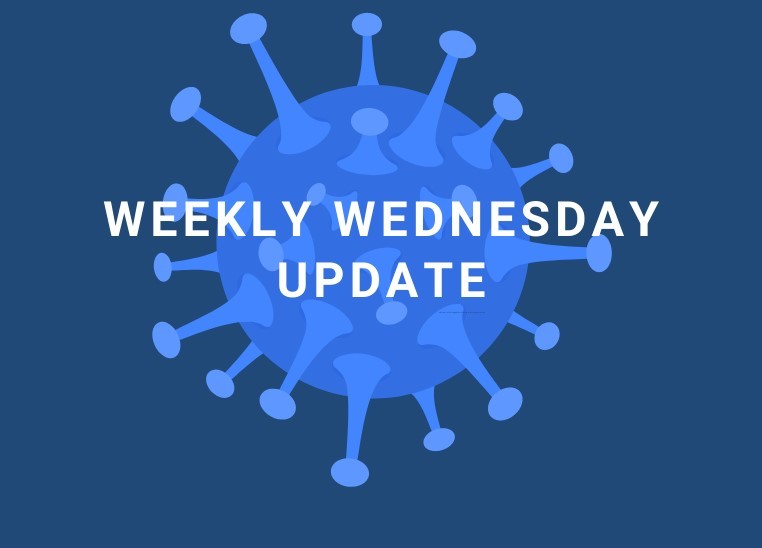
BY DEBORAH MOON
Weekly Wednesday Updates launched April 22 with a Zoom presentation to more than 350 people on “Flattening the Curve & the ‘State’ of Oregon.”
“In one short month, all our worlds changed really dramatically,” said OHSU infectious disease specialist Dr. Lynne Strasfeld in the first update.
 The Jewish Federation of Greater Portland created the series to keep our community informed on how COVID-19 is affecting us. Future updates will be provided every Wednesday (see box at right). Registration is required: jewishportland.org/events.
The Jewish Federation of Greater Portland created the series to keep our community informed on how COVID-19 is affecting us. Future updates will be provided every Wednesday (see box at right). Registration is required: jewishportland.org/events.
Dr. Strasfeld emphasized she was not speaking on behalf of OHSU, and she is an infectious disease specialist, not a COVID-19 expert. She is a member of Congregation Neveh Shalom “and a Jewish mother.”
She presented a brief overview of the coronavirus and its spread, why flattening the curve matters, how we can protect ourselves and others, how and when we might reopen, and how it ends. She also answered common questions and audience questions during a very understandable presentation.
COVID-19 is the disease caused by the coronavirus SARS2-CoV-2. The 19 refers to the discovery of the first human cases in 2019 (in China). The World Health Organization declared it an emergency on Jan. 30, and then on March 11 declared it a pandemic.
As of April 22, more than 2.6 million cases and 182,000 deaths had been confirmed worldwide. Locally the Oregon Health Authority’s weekly report released April 21 identified 1,928 cases, one-third of whom had known contact with a confirmed case.
Dr. Strasfeld said that Gov. Kate Brown’s March 23 Stay Home, Save Lives order is designed to flatten the curve. “Flattening the curve won’t decrease the number of cases, but it will space out so the number of cases won’t exceed our health-care capacity,” the doctor explained. “We learned a lot from Wuhan and Italy, where the number of cases overwhelmed the health-care system.” In Italy, that resulted in a mortality rate of 10%.
To protect yourself and others, Dr. Strasfeld urged everyone to: Stay home, call the doctor if you are sick, maintain physical distancing (she prefers the term to social distancing since “we are learning to socialize in different ways”), practice hand hygiene, clean and disinfect frequently touched surfaces, and mask or cover your face. While N-95 masks are designed to protect medical workers from the infection, the primary roles of public face covering is to protect others if you are an asymptomatic or pre-symptomatic carrier, and to remind yourself not to touch your face.
She said she does not believe it is necessary to wash your groceries, but it is essential to use hand sanitizer when you leave the store and to wash your hands when you return home.
“Our (Oregon’s) case rate is relatively low,” she said. “Provided we continue the measures in place, Oregon is lower risk than many other places.”
She also urged people not to ignore other health concerns. She said telemedicine is a wonderful way for doctors to interact with patients (see related story), but that people who need to go to the hospital or clinic should go.
“I feel comfortable that at OHSU and hospitals in Portland, we are quite prepared,” she said. “Go to the ER if you need to.”
The three-phased plan to reopen the country will not be linear or consistent across the country, she said. “Once we open, we may see an increase in infection and may return to social distancing and telework.”
But she said people should expect to resume activities – with accommodations – in the future. “Over time, we will adapt to a new normal and approach it with flexibility.”
The pandemic will not end until we have either sufficient herd immunity or a vaccination so that each ill person transmits the disease to less than one person.

0Comments
Add Comment